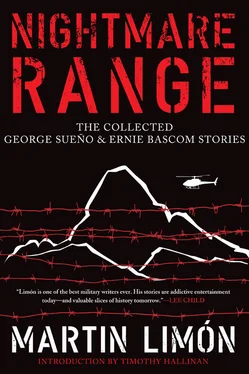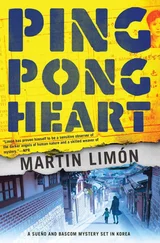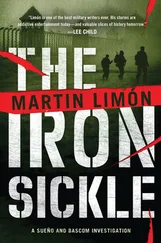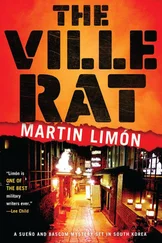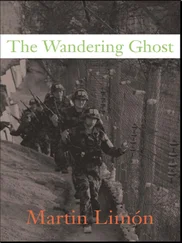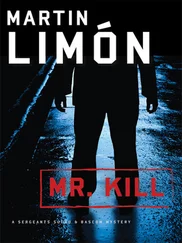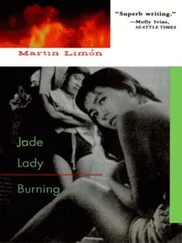Martin Limón - Nightmare Range
Здесь есть возможность читать онлайн «Martin Limón - Nightmare Range» весь текст электронной книги совершенно бесплатно (целиком полную версию без сокращений). В некоторых случаях можно слушать аудио, скачать через торрент в формате fb2 и присутствует краткое содержание. Год выпуска: 2013, ISBN: 2013, Издательство: Soho Crime, Жанр: Полицейский детектив, на английском языке. Описание произведения, (предисловие) а так же отзывы посетителей доступны на портале библиотеки ЛибКат.
- Название:Nightmare Range
- Автор:
- Издательство:Soho Crime
- Жанр:
- Год:2013
- ISBN:9781616953324
- Рейтинг книги:4 / 5. Голосов: 1
-
Избранное:Добавить в избранное
- Отзывы:
-
Ваша оценка:
- 80
- 1
- 2
- 3
- 4
- 5
Nightmare Range: краткое содержание, описание и аннотация
Предлагаем к чтению аннотацию, описание, краткое содержание или предисловие (зависит от того, что написал сам автор книги «Nightmare Range»). Если вы не нашли необходимую информацию о книге — напишите в комментариях, мы постараемся отыскать её.
Nightmare Range — читать онлайн бесплатно полную книгу (весь текст) целиком
Ниже представлен текст книги, разбитый по страницам. Система сохранения места последней прочитанной страницы, позволяет с удобством читать онлайн бесплатно книгу «Nightmare Range», без необходимости каждый раз заново искать на чём Вы остановились. Поставьте закладку, и сможете в любой момент перейти на страницу, на которой закончили чтение.
Интервал:
Закладка:
In fact, the Korean government would’ve been glad to give it. After a few months, a few years at the most, in a Korean jail, they would’ve shuffled him quietly out of the country. A face-saving gesture to assuage Korean public opinion. But if Ammerman fought them, they’d have to fight back to save face for the Korean judicial system and Korean pride and then they’d have to lay a sentence on him more commensurate with the enormity of his crime. Which was murder, after all, of an innocent woman. The Korean government didn’t want to do this. They didn’t want any publicity in the American press that would be adverse toward Korea and that might, in the long run, drive a wedge between the United States and Korea and jeopardize the longstanding security arrangements that held those seven hundred thousand Communist North Korean soldiers at bay. And even more importantly, the Korean government didn’t dare damage the steady stream of American dollars that flowed from the US Treasury to the Korean government in the form of both economic and military assistance.
But not realizing this, Ammerman was taking a tough stance. He was refusing to cooperate with the Korean National Police, refusing to admit his guilt, and just in general pissing everybody off.
All of this would’ve been his problem if it hadn’t been for the woman who appeared in the provost marshal’s office two days before the scheduled start date of Ammerman’s trial.
The woman was his wife, Mrs. Mi-hwa Ammerman.
Colonel Harkins, the current provost marshal of the 8th United States Army, didn’t want to talk to her. However, he could recognize potential trouble when he saw it, so he let her into his office. Her English wasn’t the greatest so I was called in for two reasons: I could speak enough Korean to translate and I was familiar with the case.
When I sat down, Mrs. Ammerman started in on me in rapid-fire Korean. I interrupted her and slowed her down several times and, as best I could, I translated for the colonel. The gist of her complaint was, the Korean National Police wouldn’t allow her to talk to her husband.
Did her husband want to talk to her?
No. He had flatly refused and the KNPs wouldn’t force him.
What she hoped to do was to convince her husband to plead guilty. Since the case had hit the newspapers and the television, everyone in the country had turned against her. That wasn’t so bad, for herself she didn’t care. But her children had been teased unmercifully at school and her oldest son, age twelve, had actually been beaten by a pack of older boys. So much disruption had been caused that the authorities at Seoul International School had asked Mrs. Ammerman to withdraw her children from the student body. With no money coming in, she would have to send her children to the Korean public schools. That would be a disaster. Not only were her children half-American, which was usually enough reason for harassment, but their father was a rapist and a murderer.
“I can’t get a visa to go to the States,” Mrs. Ammerman told me. “I am a Korean citizen, so are my children. My husband never had any interest in applying for US citizenship for us.”
She leaned toward Colonel Harkins, still speaking Korean to him, with me translating.
“Even my older brother has had trouble. Everyone shuns him because of me, and now he’s been fired from his job. No Korean company wants anyone whose sister was foolish enough to marry an American. Especially an American killer.”
Then she started to cry.
I finished explaining everything she said to Colonel Harkins. He spread his hands and asked, “What does she want us to do?”
“What I want you to do,” she said, “is force the Korean police to let me talk to my husband. I will convince him to plead guilty. Then my children’s lives will be returned to them. We will have our face back. People will respect their father for at least having repented of his crimes. We will be pitied but we will be tolerated. And my brother, he will have a chance to beg for forgiveness for having such a foolish sister and he will have a chance to get his job back.”
What she said made sense. In Korean society, once you plead guilty and ask for forgiveness, no matter how heinous your crime, you will usually receive at least some measure of leniency. When the criminal offers atonement, all is well again under Heaven and the King is secure on his throne. At that point, not to grant the request for forgiveness would mean that the person turning down the request is not a person of true Confucian virtue. As the Koreans would say, he wouldn’t be showing a big heart.
Eighth Army would also be pleased if Ammerman pleaded guilty. Although he wasn’t a soldier, we had sponsored his insurance company and his work visa, and his crime tainted the reputation of every American in Korea. A long, drawn-out criminal trial wouldn’t help anyone.
The provost marshal was new in-country and the intricate dance of Korean justice he still found baffling. But he did know from every conversation he had over drinks at the Officers’ Club that 8th Army wanted this prosecution iced. He turned to me. “What can we do, Sueño?”
I thought about it. “I’ll talk to the KNP Liaison Officer. If you throw your weight behind it, we should be able to force our way in to talk to Ammerman.”
The provost marshal nodded his consent.
Mrs. Mi-hwa Ammerman rose from her chair, her leather handbag clasped tightly in front of her black skirt. Then she bowed gracefully at the waist.
Colonel Harkins didn’t know quite what to do so he just cleared his throat and nodded.
With ramparts of hewn rock and a roof of upturned tile shingles, Suwon Prison looks medieval. Built during the Yi Dyansty, it had later been used by the Japanese Imperial Army when they colonized Korea prior to World War II. After the surrender of Japan, the United States provisional government took over, and now the Republic of Korea runs the place with all the efficiency that a military-dominated government can bring to bear.
A uniformed guard led Mi-hwa Ammerman and me down cold stone steps. At the bottom of three flights, a light was switched on, and down a long corridor another guard waited in front of a thick wooden door. Our footsteps clattered on wet brick.
In front of the door, Mrs. Ammerman tiptoed to peek through the grated opening. I peered in from behind her. The guard clicked another switch and the cell was suffused with light.
Fred Ammerman stood a few feet from us, his beard long, his blue eyes bloodshot and wild.
“What do you want?” His voice rasped like the hinges of ancient doors.
At first his wife just cried. The guards and I stepped back to allow them some privacy. A few minutes went by. They whispered to one another through the rusted bars. I could make out some of what they were saying, but I tried to block it out. I didn’t want to eavesdrop. All this was their personal business. Not mine. As a law enforcement officer, I wasn’t officially involved. The result we wanted, the conviction of Fred Ammerman for rape and murder, was a foregone conclusion. No Korean judge would dare set him free.
A voice began to rise-Fred Ammerman’s, not his wife’s. While he shouted, she stepped back against the stone wall. He kept up the tirade. Soon she knelt down, cowering, and made herself small. One of the guards had heard enough. He marched down the passageway and gruffly told Mrs. Ammerman that it was time to go.
As I walked her up the steps, her husband continued shouting.
“No way am I going to plead guilty,” he said. And then he added a few epithets that, in my opinion, Mi-hwa Ammerman didn’t deserve.
On the day of Fred Ammerman’s trial for the rape and murder of Yi Won-suk, both Ernie and I wore our Class A green uniforms. We sat on polished wooden benches in the Hall of the Ministry of Justice in the heart of downtown Taegu. Mrs. Ammerman sat quietly in the first row directly behind her husband. Neither of her children was present.
Читать дальшеИнтервал:
Закладка:
Похожие книги на «Nightmare Range»
Представляем Вашему вниманию похожие книги на «Nightmare Range» списком для выбора. Мы отобрали схожую по названию и смыслу литературу в надежде предоставить читателям больше вариантов отыскать новые, интересные, ещё непрочитанные произведения.
Обсуждение, отзывы о книге «Nightmare Range» и просто собственные мнения читателей. Оставьте ваши комментарии, напишите, что Вы думаете о произведении, его смысле или главных героях. Укажите что конкретно понравилось, а что нет, и почему Вы так считаете.
